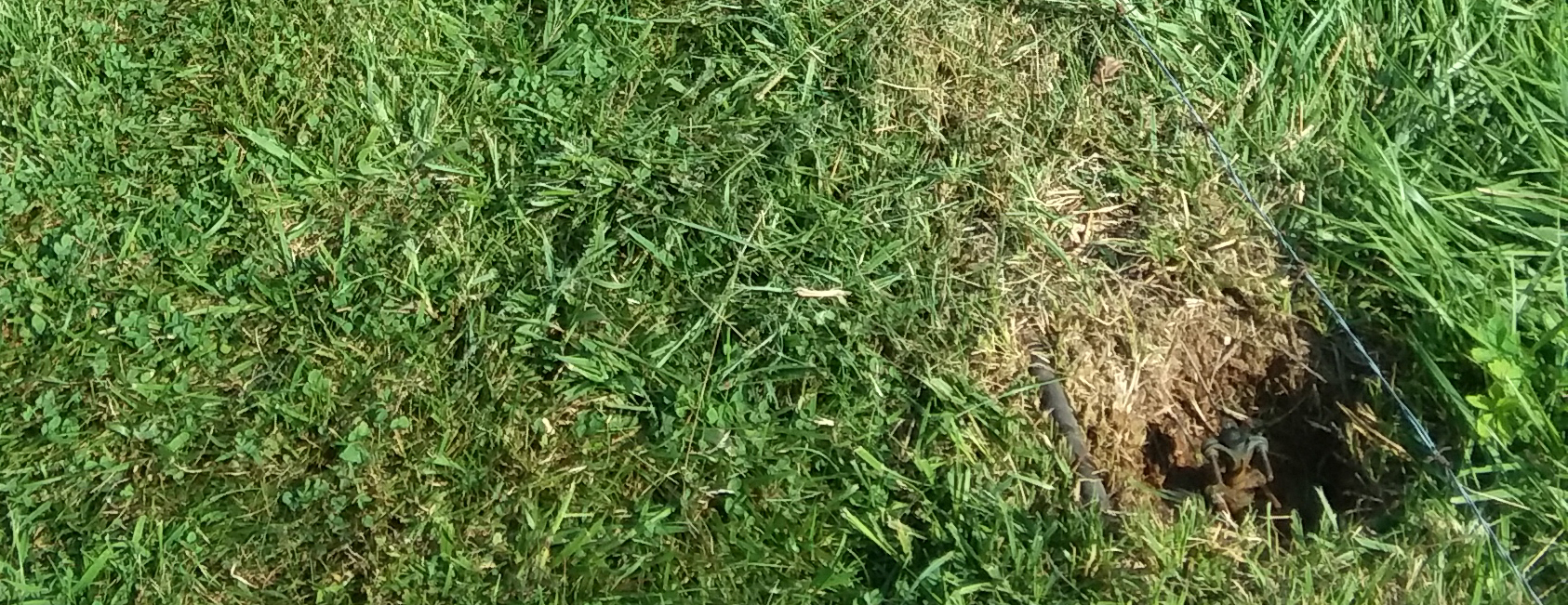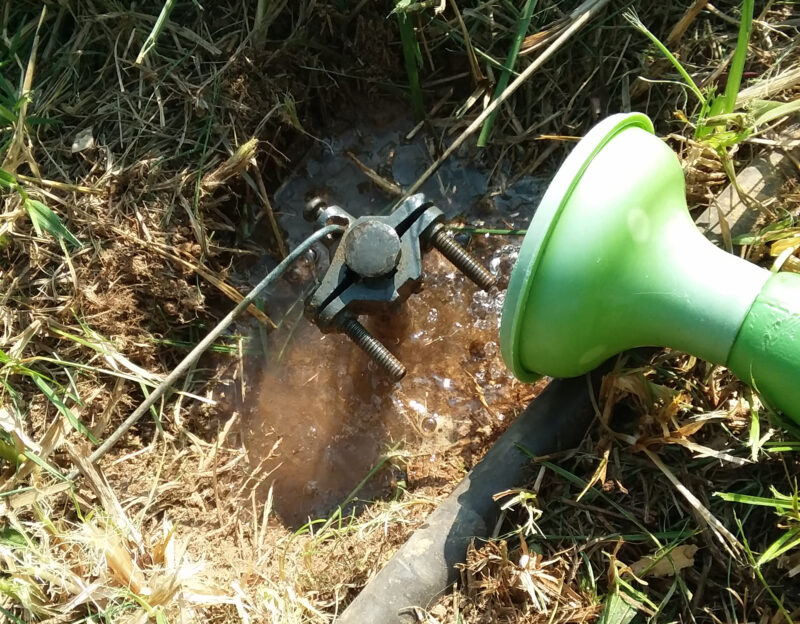
25 Jul How Does Dry Weather Affect My Electric Fence?
How Does Dry Weather Affect My Electric Fence?

For an electric fence to work correctly, it needs a good grounding system. The grounding system consists of grounding rods that are inserted into the ground. Under normal moisture conditions, the ground conducts electricity well because of the minerals and moisture present in the soil.
However, dry and drought-like conditions can affect the performance of an electric fence. The reason is that dry soil is not as good at conducting electricity as moist soil, which can reduce the effectiveness of your electric fence.
If you’re experiencing prolonged dry conditions, and if you’re noticing a drop in the effectiveness of your electric fence, there are a few things you can do to help.
Add More Ground Rods
One of the most straightforward methods to improve the grounding of your electric fence during dry conditions is to add more ground rods to your system. More rods can increase the surface area for electrical conduction, improving the system’s overall effectiveness.
Water the Ground
You can also water the area around your ground rods to increase soil moisture. Be careful with this method, as it could lead to other issues such as erosion if not done carefully. Watering should be deep and infrequent, aiming to moisten the soil throughout the depth of the grounding rods.

Placement of Rods
Ground rods should ideally be placed in an area where the soil tends to remain moist. Areas under the drip line of buildings or trees, or near water sources, often stay moister.

Use of Salt
Some people recommend adding salt or Epsom salt around the grounding rods to improve conduction. Be careful with this method as it can potentially harm plants and contaminate groundwater.
For more information and assistance with your electric fence contact our sales team here at Timeless Fence System.
or email us at


